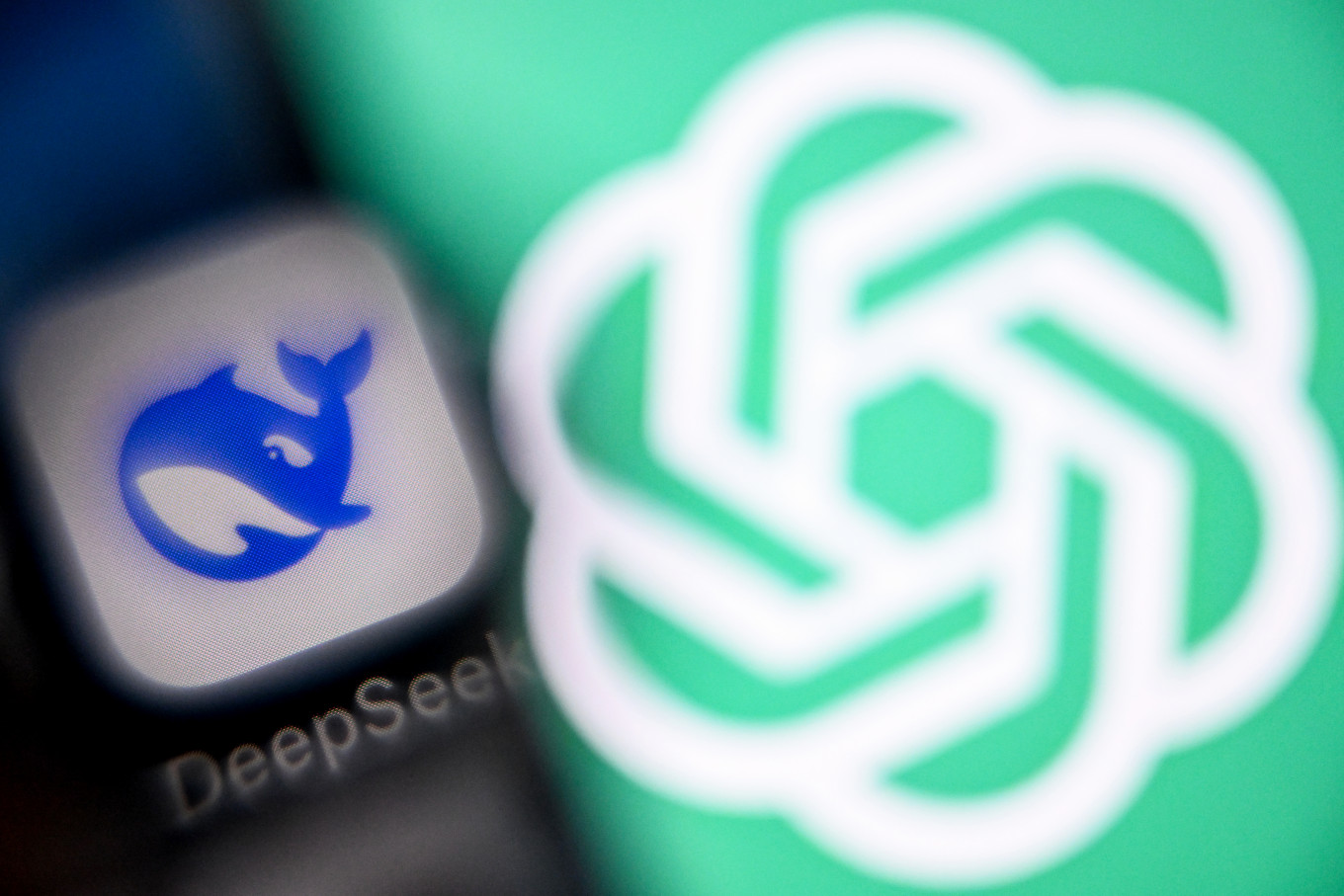Popular Reads
Top Results
Can't find what you're looking for?
View all search resultsPopular Reads
Top Results
Can't find what you're looking for?
View all search resultsHow AI will shape the contest of the century
The arrival of DeepSeek and robotics appears to have woken up the entrepreneurial spirit that has gone into hibernation among some businesses.
Change text size
Gift Premium Articles
to Anyone
T
he arrival of Artificial Intelligence (AI), robotics and new technology has been heralded as a game changer. But how will it unfold, and who will be able to take advantage of AI to win the contest of the century, the United States, China or some other country?
Writing in Foreign Affairs (November 2023), James Manyika and Nobel Laureate economist Michael Spence argued that “by the beginning of the next decade, the shift to AI could become a leading driver of global prosperity.” These gains would come from not just the rapid advances in AI in creating new content and applications in daily life, but also its rapid spread through the democratization of innovation.
But for it to happen, “not only a new policy framework but also a new mindset toward artificial intelligence. Ultimately, AI technologies must be embraced as tools that can enhance, rather than undermine, human potential and ingenuity.” I think the AI revolution has arrived faster than expected.
So far, it looks like the US and China are pursuing AI and other tech to the fullest in what looks increasingly like a two-horse race, with the others still struggling to catch up for reasons of their own.
My thesis is that no country can afford not to enhance AI adoption for national productivity, to avoid the AI digital knowledge divide. Those who do not will become marginalized.
The contest of the century is not just between the two largest economic powerhouses, but between all countries. In this cutthroat race, with big tech seeking to dominate the “pay-by-subscription” game, we may end up being mentally and financially colonized in different tech domains.
This is where the Global South can innovate its way through open-access systems that meet individual or local needs without giving away valuable data, simply because someone chooses to follow one algorithm platform, becoming locked into “pay for upgrade” contracts or developing their own models and platforms that meet one's own local needs. AI can free you or enslave you.
According to rockstar tech guru Mary Meeker’s massive Trends-AI 2025 report, “To say the world is changing by unprecedented rates is an understatement.” Today, “the world’s organized, connected and accessible information being supercharged by artificial intelligence, accelerating computing power and semi-borderless capital all driving massive change.”
“OpenAI’s ChatGPT, based on user/usage/monetization metrics is history’s biggest ‘overnight’ success.” These “AI, compute infrastructure and global connectivity are fundamentally reshaping how work gets done, how capital is deployed. and how leadership is defined across both companies and countries.”
China’s DeepSeek moment in providing similar performance at cheaper price achieved two things: Increase confidence in China's ability to innovate and convince Chinese leaders to push hard on tech advancement, especially not to lose the tech war. As former US undersecretary of defense Michele Flournoy argued, AI will transform the military and “is already at war”.
There are differing opinions on how AI will determine or shape the US-China competition. As Meta Platforms Chief Technology Officer Andrew Bosworth said, quoted by Meeker, “the current state of AI is our space race and the people we’re discussing, especially China, there’s very few secrets. And there’s just progress. And you want to make sure that you’re never left behind.”
The Stanford 2025 AI Index Report stated, “The US still leads in producing top AI models, but China is closing the performance gap.” Meeker sees the trends as unprecedented AI user and usage, plus capital expenditure investment. Even though AI computing costs are high and rising, the performance is also rising and costs per user are falling.
As users find AI usage cheaper and more user-friendly, there are threats to the monetization model exemplified by the Magnificent 7 tech boom. Nvidia President Jensen Huang said recently, “China is not behind,” he said. “Are they ahead of us? China is right behind us. We’re very, very close.”
Slowly but surely, China is ramping up the competition on AI, robotics and tech. Wendy Liu, JPMorgan chief Asia and China equity strategist said, “The arrival of DeepSeek and robotics appears to have woken up the entrepreneurial spirit that had gone into hibernation among some businesses, and investors were pleased to find that many businesses are investing for the future with quite a bit of optimism. At the same time, though, there are concerns that this may lead to intense domestic competition, hurting pricing and margins.”
Citibank’s recent analysis of the potential of Agentic AI suggests that the Golden Age of Startups has just begun because startups can build Agentic Al or personalized chatbot agents, which can make autonomous decisions without human intervention, need no prompting and can solve complex problems independently and proactively because the data and preferences are personalized.
Agentic AI has turbocharged the “Do It For Me” (DIFM) economy, especially in financial services, where investors can use their own chatbots or AI agents helping them choose financial products and execute transactions.
The democratization of AI and tech innovation is good news for the Global South, because there is plenty of scope for diverse AI agent development to experiment with bots in healthcare, education, business and supply chain processing and streamlining governmental services to meet local needs. Productivity in every field can go up using AI and robots.
In sum, this explosive democratization of AI knowledge makes its deployment a critical leadership challenge. It is up to the leaders of companies, communities and nations to decide how to use AI ethically and effectively.
My view is that governments must take the lead to streamline government processes that impede business and community life. Productivity can only happen when individuals and startups can innovate their way using AI that does not have to be purchased at high cost or impeded into inefficient paper trails with human intervention.
The government’s job is to prepare the community for both the upsides and downsides of a powerful tool, and to crack down on abuses that harm the common good.
Only with AI and human wisdom can the global race be channeled down a peaceful and prosperous path. The alternative is a destructive AI race to mutual conflict and nuclear, drone-driven war.
***
The writer is a distinguished fellow of Asia Global Institute, University of Hong Kong and chairman of George Tow Institute of Open and Advanced Studies, Wawasan Open University in Penang, Malaysia.











